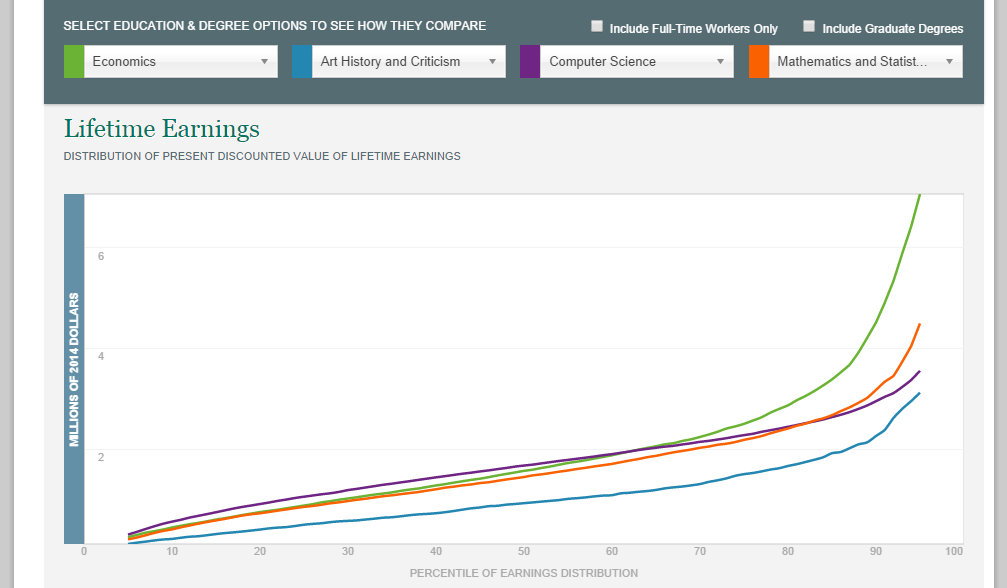Here is our message to those of you thinking about pursuing an economics major (or minor). For more on the collegiate economics major more generally, here is some information from the American Economics Association.
Advice to Potential Majors: Students interested in a major in Economics should begin with introductory classes in economics and mathematics. The first economics class is ECON 100.
Students who have satisfied the ECON 100 requirement should consider taking 200-level classes based on their own interests (e.g., 200 Development Economics, 205 International Economics, 225 Decision Theory, 245 Law & Economics, 280 Environmental Economics, 290 Economics of Medical Care).
There are three intermediate theory courses that are offered sequentially each year – ECON 300 Microeconomics in the fall, ECON 380 Econometrics in the winter, ECON 320 in the spring. These courses are most effective when taken sequentially in either the sophomore or junior year. Freshman should not enroll in these courses.
Sophomore year is a good time to take ECON 225 Decision Theory. This is not a required course, but we strongly recommend it for all majors and minors.
Mathematics Requirements and Advice: The introductory mathematics courses are essential because they are foundational to intermediate theory courses. Calculus (MATH 120 and 130 or MATH 140) is a prerequisite for ECON 300 and ECON 320. Statistics (MATH 107 or the equivalent) is a prerequisite for ECON 380.
For the purposes of the Economics Department, we believe students should consider MATH 120 and 130 if they are interested in applied problem solving and developing some Excel skills. Students who plan to take math beyond the calculus sequence should take MATH 140. The decision on which calculus to take is probably worth a discussion both with the math and the econ department faculty.
A typical sequence for a student who comes in as an economics major.
Freshman: Introductory Economics (ECON 100), 200-level courses based on student interest, Calculus (MATH 120 and 130 or MATH 140).
Sophomore: Intermediate sequence (ECON 300, 380, 320), 200-level courses based on student interest, Statistics (MATH 107). ECON 300 and MATH 107 are offered in the fall.
Junior-Senior: Advanced electives.
This sequence can be pushed back a year for those who decide during their sophomore year to pursue an economics degree.
MINOR: The minor requirements are indeed minor. No significant planning is necessary during the Freshman year to complete this degree, though our recommendations in terms of taking introductory economics and mathematics courses remain the same for majors and minors alike.
AIM Placement: If you scored a 4 or 5 on the AP micro test, you can obtain credit through the Registrar’s office for ECON 100. This satisfies that requirement for the department, though we strongly suggest you take at least one 200-level course before beginning the 300 sequence. Talk to a faculty member in economics for appropriate recommendations.
If you earned a 4 or a 5 on the AP macro test, you can obtain 6 units of Lawrence credit, and you should take Economics 100.

